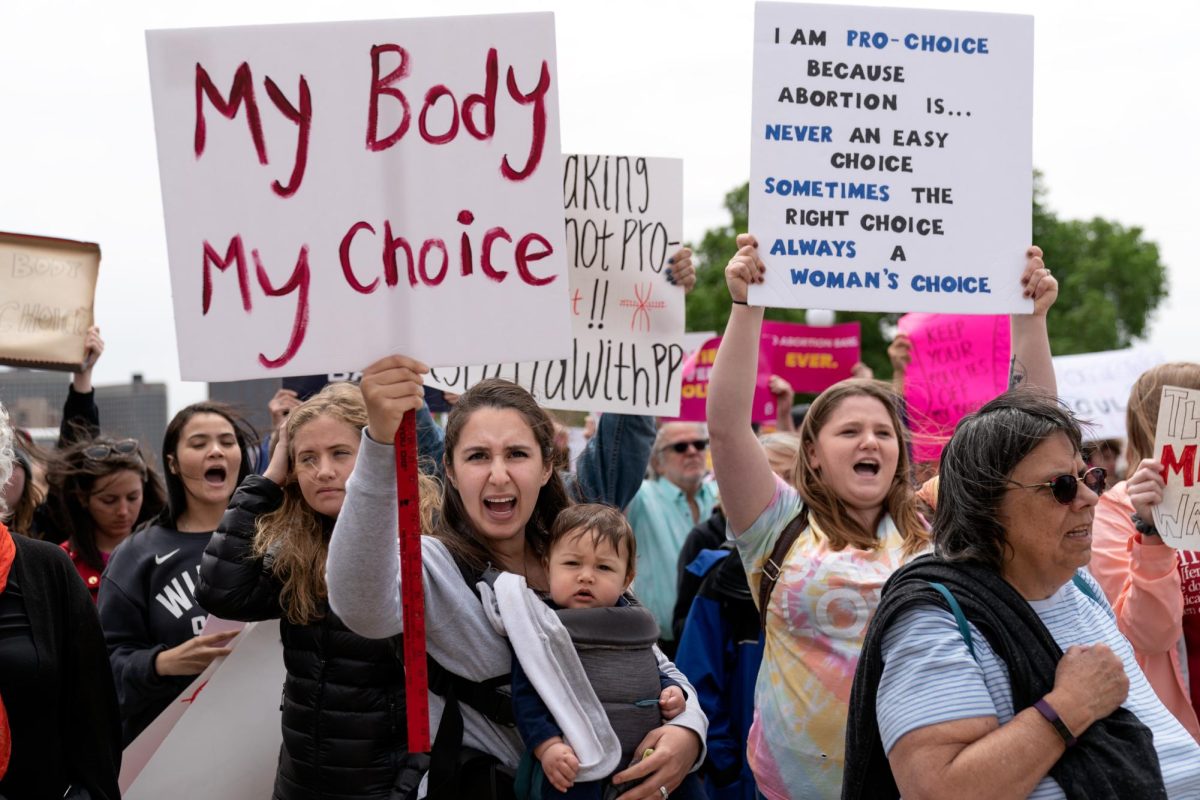Since the overturning of Roe v. Wade in June 2022, states across the country have implemented abortion restrictions that prevent pregnant women from accessing the proper healthcare. These laws, directly designed to block or deter abortion, have created dangerous situations for women, especially for those experiencing pregnancy complications and requiring medical intervention. In states with strict abortion laws, doctors and medical professionals are often unable to intervene out of fear of criminal charges and liability. This can result in serious delays in medical care and even denial of life-saving care.
The consequences of abortion bans and restrictions are already abundantly clear; women’s lives are on the line. These aren’t hypothetical scenarios. They’re affecting real people and real women across the country. In Oct. 2023, 18-year-old Neveah Carin died after being denied the medical care she needed as a result of Texas’s abortion laws. Crain, who was six months pregnant at the time, was experiencing a miscarriage, and rather than intervening immediately, Crain’s doctors were legally required to wait until the fetal heartbeat disappeared. By the time doctors were lawfully allowed to provide care, it was too late for both Crain and her baby.
Unsurprisingly, these bans have come with severe consequences that women are left to bear. These abortion bans have been the catalyst in creating a new health issue for pregnant women across the United States, especially for the women experiencing complications during their pregnancy that require medical intervention in states with strict abortion laws. These laws are specifically designed to prevent and deter abortion access, making it next to impossible for medical providers to do their jobs and help patients without potentially facing criminal charges. The consequences and implications these laws have for pregnant women within the state are not just hypotheticals.
It took over 20 hours and three separate hospital trips before Crain was eventually admitted. At her first visit, doctors did not investigate her increasing abdominal pain, diagnosed Crain with strep throat, and sent her home. When Crain returned to a second hospital with a worsening condition, doctors diagnosed her with sepsis, a potentially deadly infection. They discharged Crain as the fetus still had a hard beat and, legally bound by Texas abortion law, couldn’t yet provide any life-saving medical care. On her third ER visit, Crain was told she was experiencing “fetal demise,” but by this point, her health was deteriorating rapidly. Crain’s blood pressure dropped dramatically, her organs began to fail, and she died only hours later.
While Texas’s abortion laws do include exceptions for life-threatening conditions, the lack of clarity within these laws has left doctors fearful of potential criminal charges. These laws require proof of immediate danger to a patient’s life before doctors are legally allowed to interfere. The ambiguity surrounding these standards and restrictions is incredibly dangerous in medical situations like Crain’s, where every minute matters. As a result of the tremendous lack of clarity, medical professionals feel pressured to wait until the patient’s condition becomes deadly. Crain’s case exemplifies this conflict. Despite showing signs of sepsis, a life-threatening infection, on her second ER visit, Crain was still denied care and sent home because the fetus still had a heartbeat. These laws, designed to deter abortions, end up putting doctors in impossible situations where they must delay life-saving treatments and instead prioritize legality over medical necessity.

Crain’s story becomes even more profound when you consider her personal beliefs about pregnancy and abortion. Crain was pro-life and felt that, for herself, she wouldn’t ever seek an abortion. Her belief was a personal one, based on her own belief system, and she wasn’t concerned with whether or not the government restricted or regulated abortion access. Her stance, aligning with Texas’ laws, ultimately prevented her from the medical intervention and life-saving care she required. In an article published in The Texas Tribune, Crain’s mother, Dorthy Fails, felt that doctors were more concerned with monitoring the fetal heartbeat than caring for her daughter. “I know it sounds selfish, and God knows I would rather have both of them. But if I had to choose, I would have chosen my daughter,” said Fails.
These abortion laws are putting women, families and friends in impossible situations, ones where they are forced to watch their daughters, sisters and mothers be denied proper medical intervention and care. Despite exceptions when the mother is in danger coupled with Crain’s clear signs of sepsis, it should’ve saved her life. Instead, a lack of clarity and fear of misinterpreting the law led to extremely delayed medical care, resulting in the death of Crain and her child. Neveah Crain’s heartbreaking and preventable death is a devastating example of how abortion restrictions aren’t protecting lives; instead, they are putting them at risk. These laws that are supposedly designed to “protect the sanctity of life” instead create dangerous situations where doctors don’t act in time and women are left without the medical care they require. Crain’s death serves as a reminder that the cost of these abortion restrictions are women.






